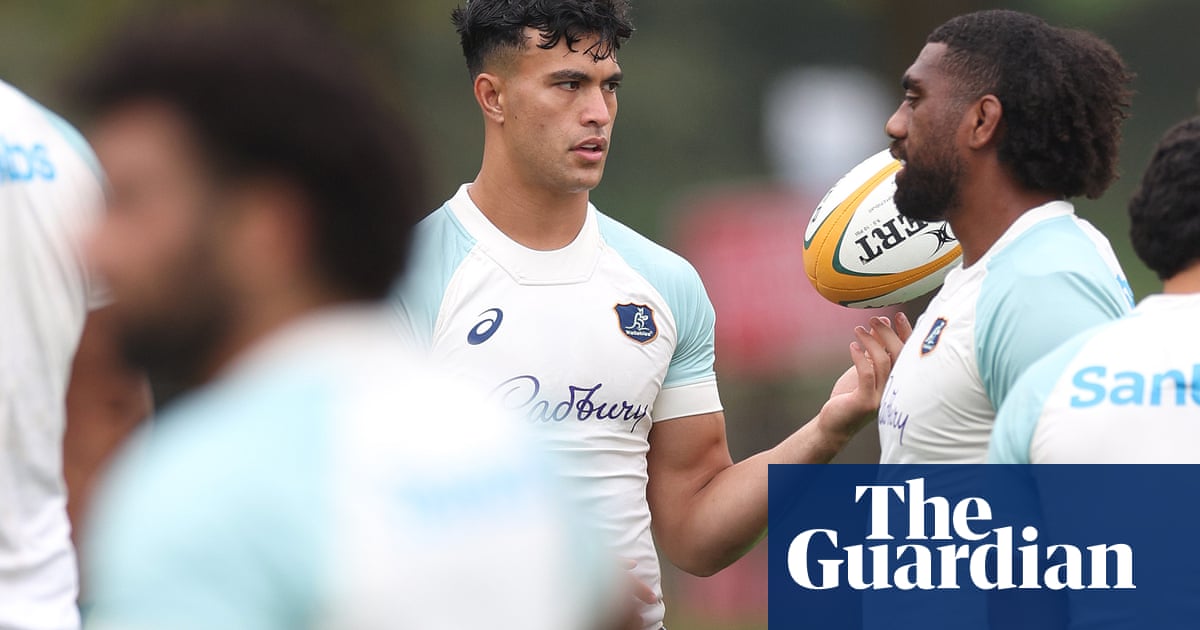Before the reigning champions, Chennai Super Kings, play Royal Challengers Bengaluru in the first game of this year’s Indian Premier League on Friday fans will be treated to an opening ceremony headlined by the composer AR Rahman and featuring the actor Tiger Shroff as well as Sonu Nigam, who describes himself on Instagram as “an entity that translates vibrations of the vacuum into frequencies of music” but can be less confusingly labelled a singer. Tickets went on sale only on Monday but sold out in minutes, so rapidly that Ravichandran Ashwin, a cricketing superstar and Chennai native who played his 100th Test for India against England earlier this month, had to beg on X for help getting his kids in.
A little more than five months have passed since India hosted the opening game of a World Cup for which there was no ceremony, which started in near silence and in front of almost empty stands, and which presents a contrast that emphasises the supremacy of the IPL not just in the imaginations of Indian fans but as the ultimate blockbuster cricketing product. If there is another World Cup on the horizon – this year’s T20 version, which starts in West Indies and the USA in 10 weeks – for players it is a largely unnecessary extra incentive. It is over these two months in India each year that reputations and fortunes are won and lost.
The pre-tournament drama has centred on captaincy, with plot twists extending right to the eve of the tournament when Ruturaj Gaikwad surprisingly turned up wearing CSK colours for a photocall featuring nine of the 10 captains (Punjab Kings sent Shikhar Dhawan’s deputy, Jitesh Sharma). In doing so he demonstrated that MS Dhoni’s ability to sense the most dramatic moment to make a telling intervention is not limited to run chases. Gaikwad’s arrival effectively announcing the news, swiftly confirmed by the team, that Dhoni had stood down. The 42-year-old had led CSK since 2008, winning the tournament five times, but goes into what is expected to be his final season as a humble member of the rank and file.
At Mumbai Indians Rohit Sharma has been replaced by Hardik Pandya, who rejoined the team sensationally after two seasons at Gujarat Titans in which he became statistically the most successful captain in the tournament’s history, winning 71% of his matches, reaching two finals and lifting the trophy in 2022. Aiden Markram might have won back-to-back SA20 titles in his native South Africa as captain of the Sunrisers Hyderabad offshoot Sunrisers Eastern Cape, but having led the mothership to last place in 2023, has been replaced by Pat Cummins, who briefly became the most expensive player in IPL auction history when they paid £1.93m for him in December (Kolkata Knight Riders smashed the record to sign Mitchell Starc minutes later). Rishabh Pant’s first competitive game after the horrendous 2022 car crash that left him hospitalised for a month will come in Mullanpur on Saturday, when he captains Delhi Capitals against Punjab Kings.
This may be the competition every cricketer wants to be involved in but it is not one every national association wants their players to be anywhere near, and before a hectic summer the England and Wales Cricket Board has ordered several centrally contracted fast bowlers to stay at home. Having had Jofra Archer suffer a recurrence of his elbow injury while playing for MI last year they preemptively ruled him out in December, and in February intervened again to protect Mark Wood and Gus Atkinson.
On auction day last December Atkinson and Phil Salt were in Trinidad with England’s white-ball team, the former celebrating landing a deal with KKR while the latter came to terms with being left unclaimed; three months later Atkinson is at home and Salt is in Kolkata, who approached him when Jason Roy dropped out for personal reasons. Thirteen Englishmen remain involved, of whom Jonny Bairstow is the only one completing the marathon Indian winter treble of World Cup, five Tests and IPL.
after newsletter promotion
As in the last two years there are 10 teams and 74 games but there are a couple of novelties: two bouncers will be allowed per over, double the previous limit, and officials will benefit from a Smart Replay System. The smart thing about this system is that it puts the TV umpire in the same room as the replays, which means they will see footage, particularly from the eight Hawk-Eye cameras, more rapidly. They will also get more split-screen options, and the hope is for better and much quicker decisions.
This is the first of two long running national level dramas that will grip India over the next few months, with the general election starting on 19 April and running for 44 days – three weeks fewer than the IPL – to allow different states to vote at different times. Details of 53 fixtures are yet to be confirmed as organisers work on avoiding clashes with local polling days. But of the two it is only the IPL that offers instant results, shifting narratives, universal popularity, real star power – and an uncertain outcome.









